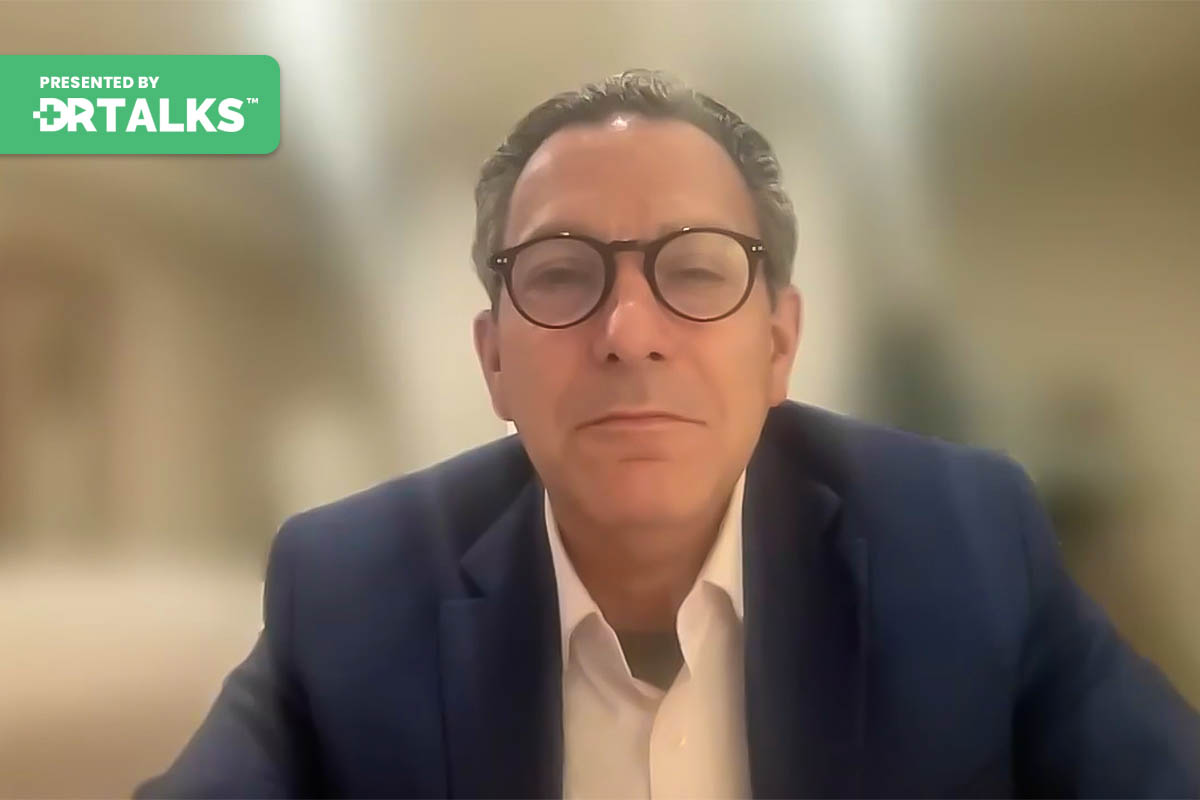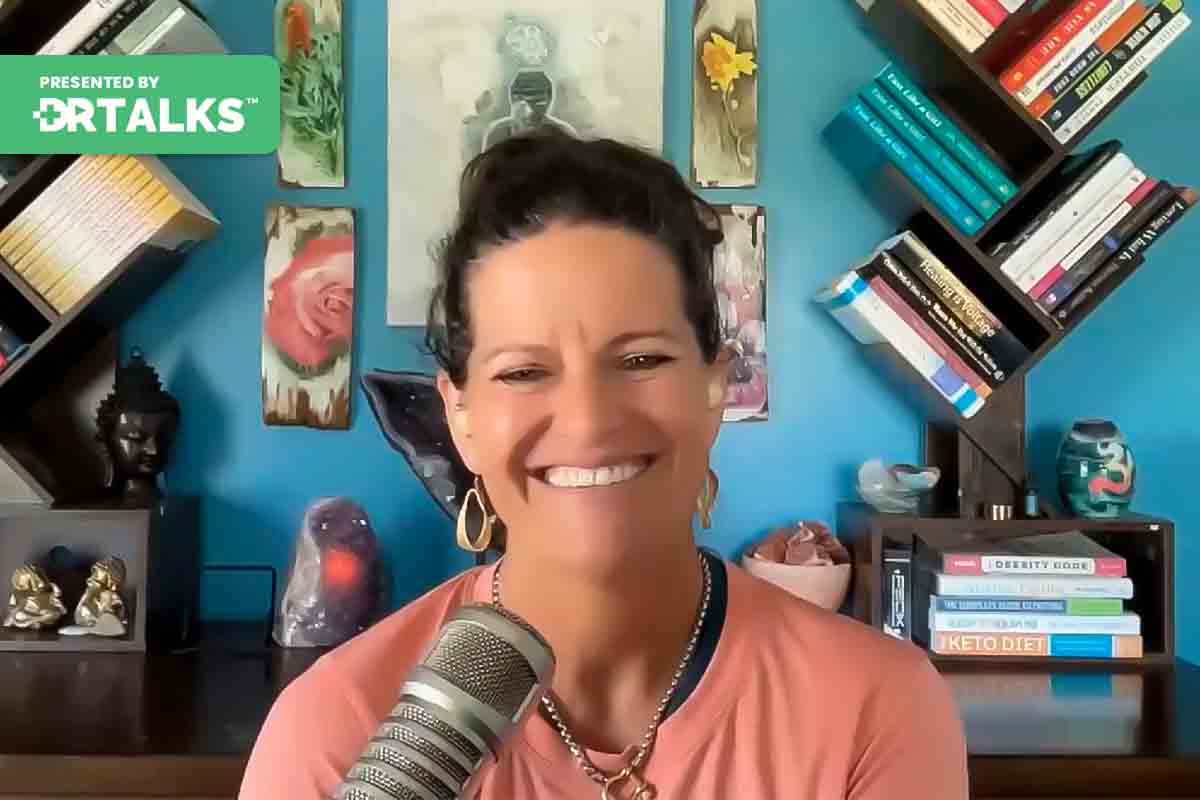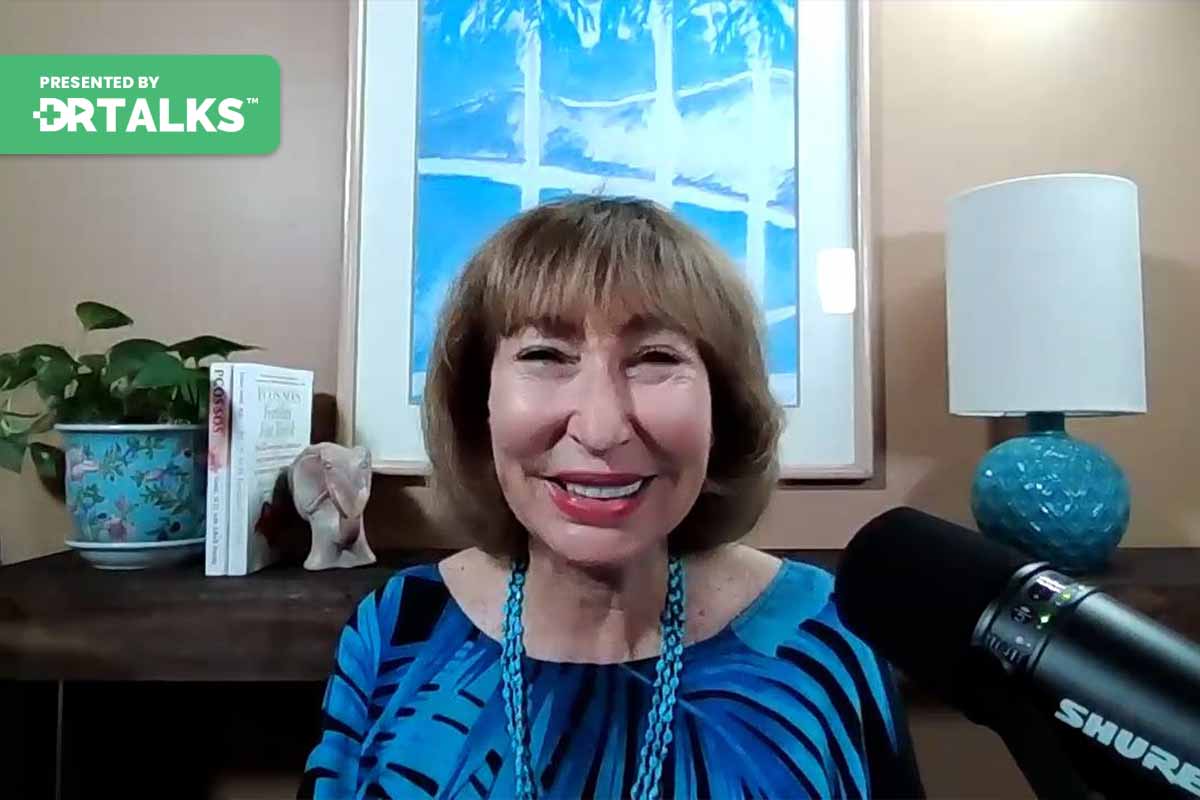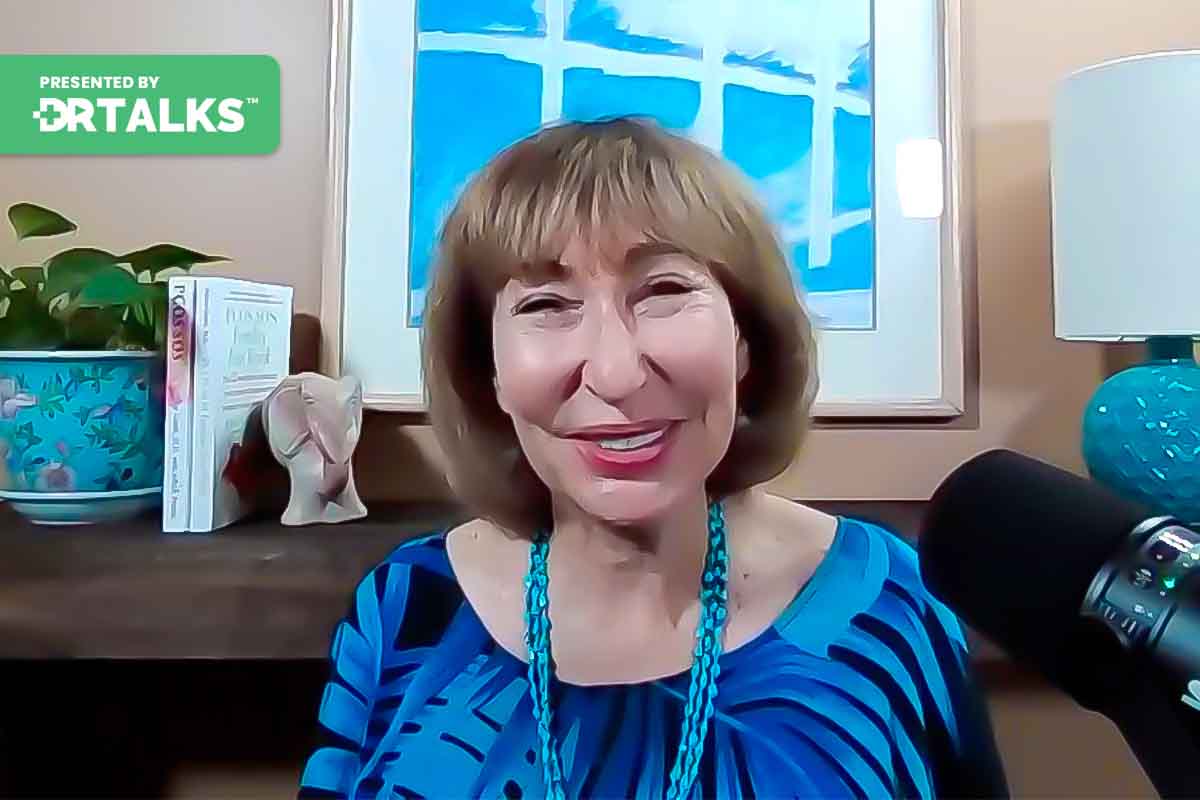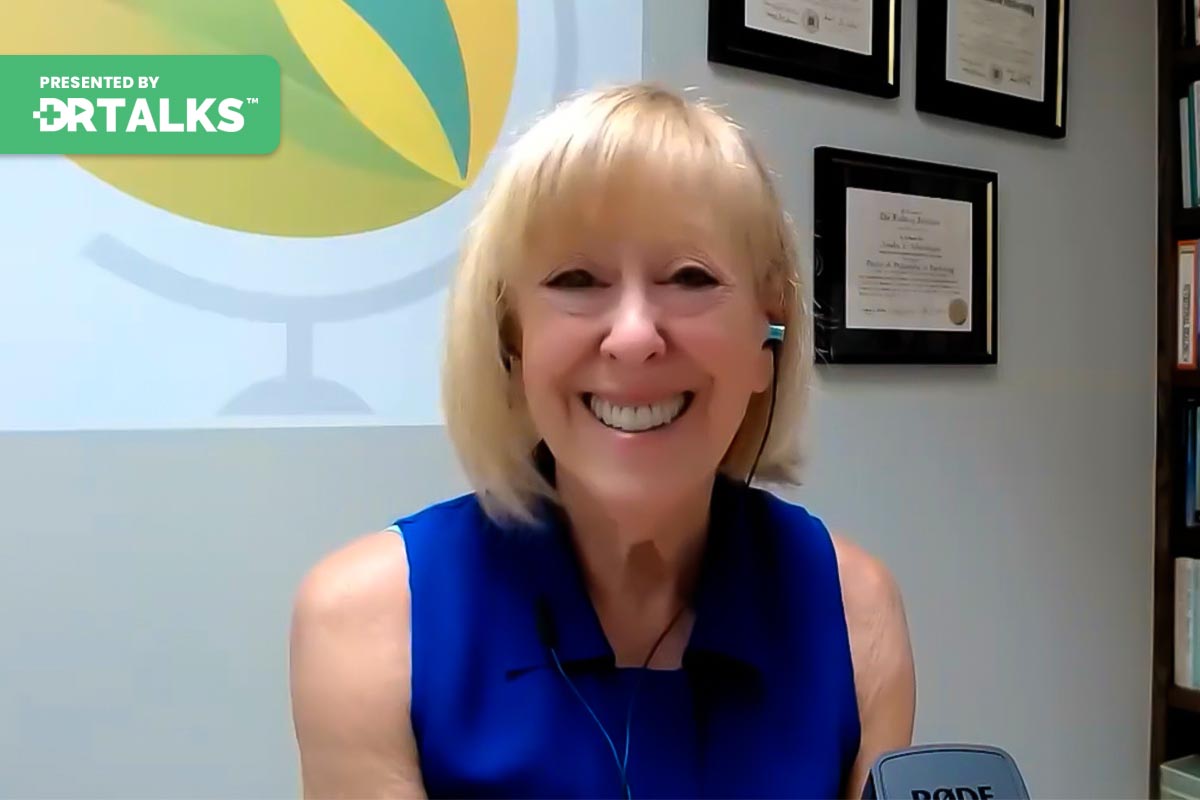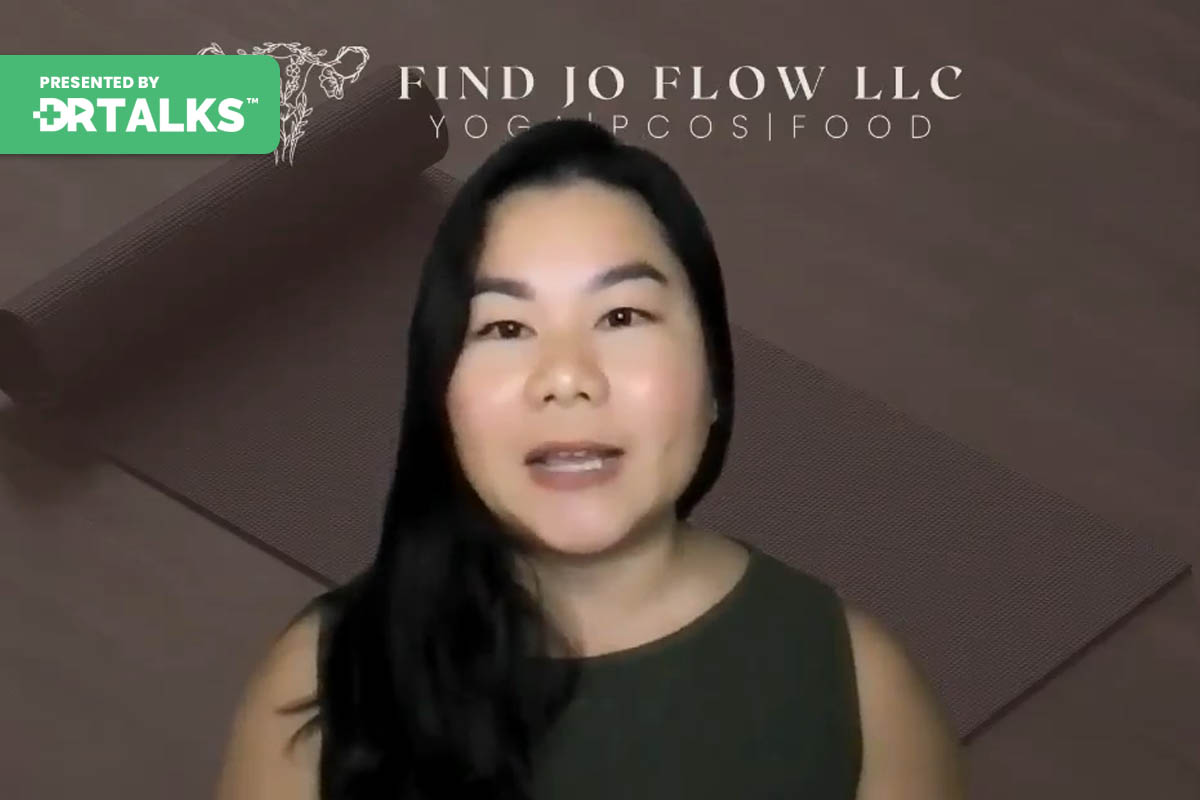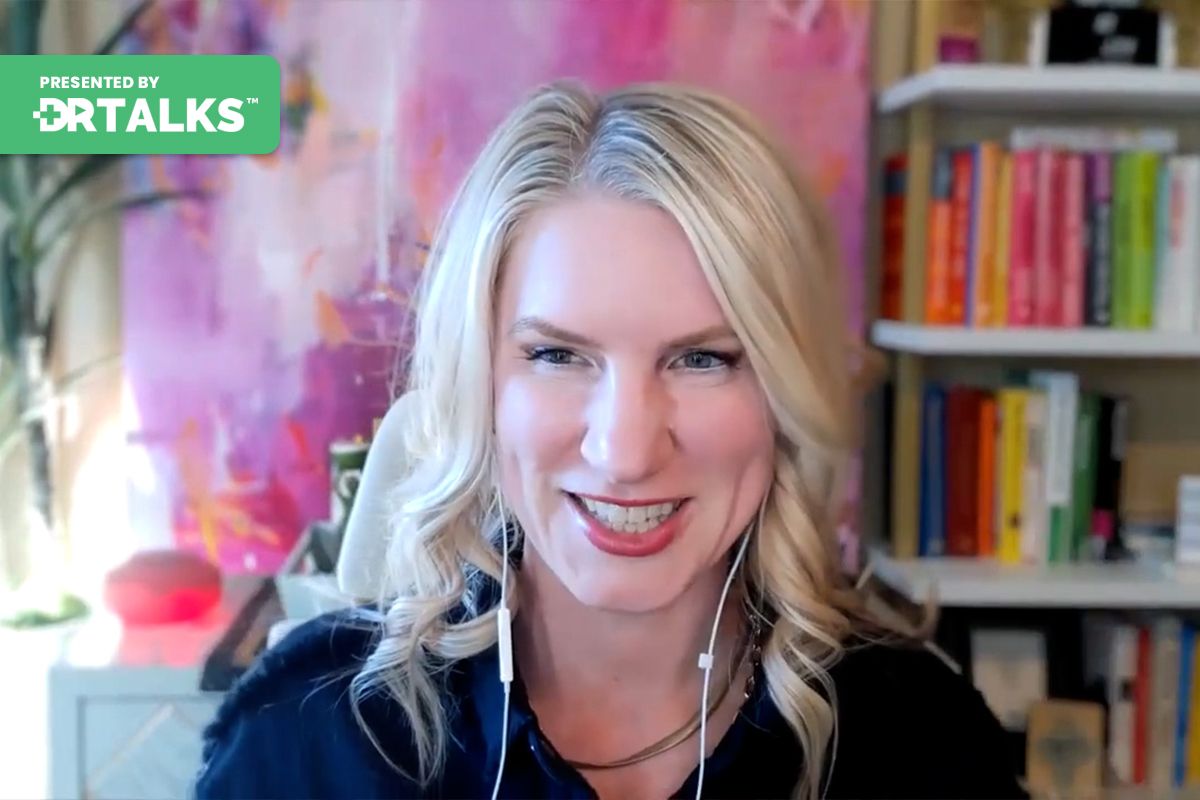Join the discussion below

Felice Gersh, MD is a multi-award winning physician with dual board certifications in OB-GYN and Integrative Medicine. She is the founder and director of the Integrative Medical Group of Irvine, a practice that provides comprehensive health care for women by combining the best evidence-based therapies from conventional, naturopathic, and holistic... Read More
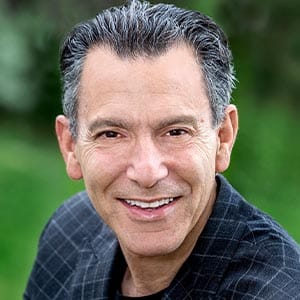
Joel Kahn, MD, FACC of Detroit, Michigan, is a practicing cardiologist, and a Clinical Professor of Medicine at Wayne State University School of Medicine. He graduated Summa Cum Laude from the University of Michigan Medical School. Known as “America’s Healthy Heart Doc”. Dr. Kahn has triple board certification in Internal... Read More
- Discover why heart disease is the most common cause of death in women and how it can be diagnosed years before a heart attack
- Understand that heart disease can be reversed to a degree before a heart attack occurs
- Learn how hormone replacement therapy could reduce the risk of heart disease in women
- This video is part of the PCOS SOS Summit
Related Topics
Abnormal Heart Calcium Ct Scan, Blood Pressure, Blood Tests, Calcium Score, Cardiovascular Disease, Cholesterol Problems, Healthy Diets, Healthy Fitness, Healthy Lifestyles, Healthy Supplements, Healthy Weight Loss, Heart Disease, Heart Health, Insulin Resistance, PCOS, Prescription Medication, Preventive Strategy, Screening, Sudden Cardiac Death, Womens HealthFelice Gersh, MD
Welcome to this episode of the PCOS SOS Summit. I’m your host, Dr. Felice Gersh. Women with PCOS suffer high rates of cardio, metabolic dysfunction, diabetes. They have higher risk for heart attacks and strokes over the course of their lifetime. Identifying one’s risk. Identifying one’s cardiovascular status, and then mapping out a strategy for how to improve cardiovascular status. That’s really important. So I’m so excited to have with me my guest for this episode, Dr. Joel Kahn, an incredible cardiologist, a prolific book writer, author of articles, researcher and clinician. Welcome, Joel. Thank you so much for joining me. And what I would love for you to do is expand upon the whole issue of women. PCOS Cardiovasc, ocular risk and then what can be done to lower that risk and optimize health for sure.
Joel Kahn, MD, FACC
And thanks Dr. Gersh for the invite. You’re great audience. I feel like you’re a sister from another mother, as they say about our brother, because we share so many common interests and I’m not 39 anymore. I know you still are, but we seem to have a lot of energy to keep educating and treating patients and it’s just one of the most enjoyable things anybody can ever do with their life. So good for you. And but, you know, this is a bold statement, but I think the single biggest deficit in the entire medical system of let’s just look at the United States, although some of your audience is probably in other countries, the single biggest deficit is we do not screen for the number one killer of men and women in Western countries. We simply don’t screen for it. And we’re going to wrap this around real quick, the PCOS patients. But if you think about it, you know, when you’re between 40 and 50 years old, you’re going to be told you could suffer some serious conditions and you should get a call and ask a buyer of Cologuard, even though you have no GI symptoms and I endorse that you should get a mammogram or some people, you know, want to go a different route. Do it. Thurman grab. You should get a gynecologic exam for perhaps endometrial cancer and guy should get, you know, some prostate cancer, physical exam or lab screening called the PSA. So we basically teach the public that at their annual physical, which not everybody does, but if you do sign up, we should screen for four cancers. Those four cancers are critically important, but they pale. Absolutely. And numerically and in terms of burden of death and disability and expense and tragedy with heart disease. And I mean, when was the last time anybody 45 years old, 50 years old, was told, we are going to screen you for heart disease? You need to know if you’re on your way to developing the number one killer of men and women in the Western world. You know, it’s every 30 seconds somebody dies the United States of a cardiovascular disease and every 40 seconds somebody has a heart attack and a thousand people a day dies suddenly. This is the biggest tragedy. It’s called SCD, sudden cardiac death. You don’t get to kiss your family goodbye. You don’t get to lie in bed and have special moments with your children and your spouse and your grandchildren. You’re just found dead in the bathroom or in your car or in your couch or in your bed. Sudden cardiac death. The point is, again, the biggest deficit in American medical system is we do not screen for our disease. And I just want to spend a few minutes talking about that, because the population with PCOS is a prime target to address and rectify that. And what I love about what I’m going to talk about is it’s not expensive and it’s not exclusive and it’s not elitist. It’s not about, you know, color your skin or other place you live. You just got to get a little education. So it turns out, let’s just say you’re a 58 year old woman and you’re having angina, chest tightness or burning or shortness of breath, and you’re found to have severe blockage and you end up with a stent or a bypass or maybe you present with a heart attack. A lot of people, the first clue to heart disease is already a heart attack, which is a potentially life threatening and very life altering condition of that condition that led to the presentation has been building up for years and years and years. You know, just think about a volcano that sits there quiet and dormant, but underneath there’s all that lava and then one day just blows up.
But for years and years, experts could have detected that there was a situation. Heart disease is similar. So go to your doctor. Could be your gynecologist, could be your internist, could be your family doctor, could be your natural or oriented doctor and say, I have PCOS. And the studies say I’m at increased risk for heart disease and oh my, I’m insulin resistant. My weight is an issue. My hormones are off as is, of course, the case. My blood pressure’s up and maybe my cholesterol is up. I want you to order for me some tests. So the single most important test that I would seriously consider in a woman with PCOS around age 45 to 50 is a simple test. At any hospital you can be in Irvine, California, near Dr. Felice Gersh. You can be in Detroit, Michigan there. Dr. Joel Kahn you could be from east goes west coast north to south, and you need a prescription from your doctor for a heart callus c.t scan a heart calcium c.t scan. Let me just tell you what you’re going to do. You’re going to have a prescription and you’re going to call that hospital in Irvine or Detroit or Louisiana or Texas or Alaska. And you’re going to say, I want to schedule a heart calcium CT scan. I’m going to tell you when to come in. If you happen to live in Texas, it’s going to be covered by insurance. If you happen to live in California or Michigan, you’re going to probably pay about $100 out of pocket. Maybe you can get that covered by your HSA. Maybe you’ll just pay $100 and say that’s about as much as a family dinner for for would have been. But I’m doing something for my health, so I made a little sacrifice. You’re going to lie on a stretcher. They’re going to put you in a CT scanner, basically a big, non claustrophobic circle. You’re going to hold your breath for about 10 seconds and then you’re going to go home. And I said nothing about needles and nothing about injections and nothing about radioactive liquid that’s put in your body. And there’s no treadmill test. You can have a hip problem. You can have a knee problem, you can have a back problem. It doesn’t matter. You just got to lie still for about 10 seconds. And during that 10 seconds, when you’re holding your breath, a quick CT scan is done of your heart, painless and not at all scary. About a day later, you get a phone call from your doctor. Hopefully will follow up, but the test will be available because there’s a software program that interprets those images very quickly and you’re going to be told the number. And the number happens to be called an Agatston score after a cardiologist named Dr. Arthur Agatston. But that Agatston score could be zero and it could be 111, and it could be 674 and it could be over a thousand. There’s no real upper limit, but the highest I’ve ever seen is a few thousand to four or 5000. And you want to be a zero? A zero tells a woman with PCOS, age 48, age 51, age 44. My insulin resistance, my blood pressure, my weight, my cholesterol problems. Fortunately, don’t seem to be causing premature heart blockage, premature atherosclerosis. I’m going to keep going to the gym and I’m going to keep eating my plant. Strong diet and I’m going to be measuring my blood pressure in my labs and all the rest. But fortunately, my calcium score of zero is like getting a clean Colleen ask B It’s like getting a normal mammogram. It’s like having a completely normal gynecologic exam or a normal prostate exam for a guy. It’s the real, real preventive strategy to reassure you that you’re not at risk and we’re not going to have a tragedy ahead. The best data which comes out of the northern European countries, and I think specifically Denmark and the Netherlands, is that about 50% of us maybe let’s take age 50, don’t have a zero score. We’re abnormal. 50% of us are abnormal. In the best studies done by PCOS, it’s a pretty similar cut. The odds that you’re a woman of age 45 to 50 and your calcium CT scan is not going to come back that perfect zero reassuring score.
It’s about two and a half times higher for women with PCOS, two and a half times higher than women that don’t have PCOS. So you should be not worried, not agitated, but you should be concerned and you should ask for that test. And the biggest tragedy in medicine is we don’t screen for heart disease. The second biggest tragedy is the test I just told you about. It’s been available for 30 years. It’s actually developed the University of California, San Francisco. It’s available all over America. It’s not expensive in 2023, 2024. It’s just we’re still stuck in a world where family doctors, gynecologists, primary care doctors are not ordering it like they order a call and ask that a mammogram. And if we simply would, we would have a very educated populace, some of whom can continue to work on their healthy lifestyles, but be reassured, sure, that at least at this point, they’re okay. Now, what happens when you get a normal call and ask a, b? They tell you, Yo, Dr. Gersh, you need to come back in 5 to 10 years and will check you again. That’s exactly what happens with a normal heart. Calcium c.t scan. And if you’re abnormal, you need to start reading and studying about healthy lifestyles and healthy diets and healthy fitness and healthy weight loss and healthy supplements that have been studied right up the street from you at UCLA. They’ve done a lot of really interesting high science in humans and supplements for people with abnormal heart, calcium C.T. scans that you might end up even needing prescription medication. But, you know you’re leading your life with eyes wide open. My PCOS seems to have increased my risk and I actually now know I have some heart disease I can’t joke around anymore by occasionally running into Taco Bell or McDonald’s or having my Coke or my Mountain Dew. No, no, no. I can’t do that. You got to really upgrade your health and put it as a priority. So there are blood tests to do. But if we just did that one step, if pizza as a woman, I know I’m not talking at age 25 or 30. It’s not really the right test then. But I’d say from 40 on and certainly from 45 on. And if you’ve got brothers, sisters, mother or father that have had a heart attack or stroke, maybe even a little closer to 40, and then do it again in 5 to 7 years. So, you know, the world expert again is right up the road from you at UCLA, Dr. Matthew Budoff. And what I’m saying may sound a little bit radical, or maybe you haven’t heard it before, but it’s backed by thousands of studies, it’s backed by comments by the American Heart Association and international heart groups that people at risk. And let’s now talk about women at risk. You know, your triglycerides, your HDL, your LDL, your inflammation, your blood sugar, your blood pressure, what the scale tells you in the morning when you step on it, you should put all that in and say, I got to find out. I hope I’m a zero, but I want to know I don’t want surprises in life.
Felice Gersh, MD
Well, there are so many things that just came out of that little presentation that you gave about it. And one of the key things that I think really requires a lot of emphasis is the fact that every woman with PCOS is going to get older. So much of the focus on PCOS has been in the reproductive years, like in the teens even, and twenties and thirties, a lot of it focused on reproductive issues and the cardiometabolic issues have really taken like second stage in terms of the focus that it really deserves. And in fact, until fairly recently it had been actually said and I heard this in actual conferences that once women with PCOS hit menopause, they have no increased risk over the general population of women, which is absurd. Even back in the day when I heard that and we’re not talking about that long ago, like within the last ten, 11 years, that’s what was being said even more recently. And I said, how could that possibly be? By age 40 they have sevenfold increase incidence of diabetes, they have more hypertension. How could it be that this risk dissipates when they hit menopause? Of course it does not. Now we have papers showing that, just like you said, women with PCOS maintain this higher risk and it really becomes manifested in events, you know, real honest to goodness, life threatening events once they get older, past menopause in particular. And so it is so important to know and of course, there’s been such a like ridiculous deficiency of studies directly on women with PCOS because they didn’t even acknowledge in fact they said the exact opposite until so recently. But there was what it wasn’t focused on women with PCOS, but back this Women’s Health Initiative study, they did a subset study that I’m sure you know about where they took women and they did a calcium score on a group of them, and then they followed them out for like at least 15 years. And exactly what you said, the women with the calcium score of zero had pretty close to no events, no cardiovascular events like heart attacks and strokes during the ensuing 15 years. So talk about a great piece of data, right. If you get such a score. Now, they weren’t studying women who had had a history of PCOS. They didn’t look at that issue. But that’s such good reassuring data for that calcium score of zero. I really think that’s great. And in terms of some of the issues that you talked about, like for people to understand, like plaque, like you used the little sort of story of like a volcano erupting. Like sometimes people talk about plaque erupting and so on. Maybe you could go back and explain to the audience like what is happening in arteries, like what’s going wrong with them that could lead to heart attacks and strokes and what is plaque and what is being looked at with a calcium score?
Joel Kahn, MD, FACC
Yeah, absolutely. So I’ll give a short synopsis there. But you know, we are all born with clean arteries. There are a group of diseases called congenital heart disease like holes in the heart. But arteries are always clean and there’s really eye opening studies called the Bogalusa Heart Study Group that by age 18, at least in the southern part of the United States, a lot of a lot of young men and women already have plaque or damage or injury to the lining of their artery that can be detected with simple tests, like ultrasounds of the carotid arteries of the brain by age 18 were already showing signs of disease, at least with the traditional Southern diet, but in other parts of the country. So, I mean, what happened and you know, after World War Two, there was a real spike in heart attacks across the United States. It was a good economy. We had McDonald’s, we had drive ins. Women went to work, so they weren’t cooking meals. A lot of cigarets were being smoked because the GI Bill and free tobacco during World War Two and our government started studying heart disease. And just to be concise, by the 1960s we had the big five. You are at risk for a heart attack if you smoke, have diabetes. There is our PCOS group have cholesterol abnormalities. There’s our PCOS group might have blood pressure elevations that might be our PCOS group. And mom, dad, brothers, sister had an early heart attack, stroke or death. So those are the big five. That was 1961, 62, this a lot of years ago.
And now I don’t have enough fingers on my hand or my toes. If I showed everything together, there’s, you know, at least 25 measurable. And there are many more potential things that injure our arteries when we smoke all those chemicals get into the bloodstream and can injure arteries. And when our blood pressure’s high, it could injure arteries and our blood sugars. I can enjoy arteries when we eat a animal heavy diet, we make a chemical called TMAO, injures our arteries. There’s a genetic cholesterol everybody should hear of. And this is probably the second most passionate statement I have that 100% of us make cholesterol that’s necessary for life and health, but 25% of us get a gift from our parents where we can make two kinds of cholesterol, one called LDL cholesterol, one called lipoproteins, little egg. And it’s a simple little blood test, although it’s a very long word to ask your family. Doctor, internist, I wonder if I inherited from mom and dad, particularly if mom and dad had a heart attack, a bypass, a stroke is, then I wonder if I’m one of those 25%, as you know, 90 million people in America as a lot of people and, you know, 2 billion around the world. So it’s not a routine test. It’s another major deficiency in our medical system. We just don’t look for the causes of heart disease. So here we are. We got these beautiful arteries and they’re just getting pounded by blood pressure, by cholesterol, by blood sugar, by lipoprotein a by poor quality food, by smoking chemicals. And ultimately, there’s injury to the lining of the artery, this beautiful artery you’re born with. And as soon as a little injury to the artery, you don’t have a heart attack necessarily, but the cholesterol can get in under the lining. It’s like a wallpaper and maybe you can imagine a wallpaper with a little bubble in it because it isn’t sitting well, but the cholesterol can get under and it just starts a whole cascade of fancy words like inflammation and white blood cells coming along and scar tissue in college and tissue and then calcification. And that’s why we do these hard seeds. We can pick up plaque because 20% of mature plaques are calcium and the calcium shows up in the CT scan. The rest of the plaque is cholesterol and white cells and the fibers tissue like scar tissue. So that’s what happens. And it takes years. It’s a slow, progressive process, sort of like we think most cancers take years before we make a clinical diagnosis, sadly, because earlier diagnosis would be a more favorable outcome in most cancers, certainly the same for heart disease. That’s why we’ve got to get more aggressive and check the heart. Calcium CT scan. I didn’t mention when I told you what you’d go through. Having a heart calcium CT scan very importantly, it is a CT and it is radiation. But if you measure how much radiation a woman gets during the mammogram, which a very common test, of course, and how much radiation a woman might get during a heart, calcium CT scan, it’s actually a little lower for the CT scan. Plus, you’re only going to do it every five or seven years if you ever repeated again. So it’s not like we’re not concerned about exposing people to radiation, but it is a very low dose. We walk around asymptomatic and our mind disease, my heart disease is a silent disease for years and it’s very easy to be lackadaisical and assume I went to the gym today. I worked at my job today. I helped my kids today. I went to the grocery store today. I wrote a new book today and have no problem. You can have rotten arteries and that’s the volcano till it suddenly erupts. We don’t know why a disease dietary on Tuesday brought on no problems. And on Wednesday you’re having a heart attack and you’re calling 911 and you’re in great distress. What exactly flipped the switch in such a short time period? In some people, it’s emotional stress and it’s smoking and it’s very poor quality diet choices.
And a bad night’s sleep might be a virus. We don’t know exactly what triggers that last minute, but my plea to the women listening is don’t wait till that last minute, move it back and make a diagnosis early and then start becoming a great student. Read about player based nutrition and how it helps stop and prevent heart disease. Read about fitness. Read about sleep. Get off Cigarets. Get your lab tests done. Find some reasonable vitamins to take. You and I are both fans of a form of fasting called fasting mimicking diet that might help fight inflammation and might help you with your weight and might help you with your insulin resistance. So yeah, we use all kinds of strategies, but we seem to attack cancer. We’re just lazy about heart disease until the last minute. And I’d like to change that paradigm right now and just say, you know, I want to I want the mammogram of the heart. And the mammogram of the heart is called the heart calcium CT scan. And if my risk is high from this PCOS disease, maybe I can’t prevent it, but I’m definitely not going to wait till I AMA emergency room statistic. I want to identify it early and learn how to prevent it. As I say, you take that just our 100 women that don’t have PCOS and 100 women that have PCOS and you do the heart calcium CT scan. It’s about two and a half times more likely that there’ll be abnormalities in the PCOS group and then medical statistics. That’s a pretty powerful number. And just one last statement. Your doctor might see you at age 45 and say, I put in your cholesterol in a little calculator on my laptop and I put in your blood pressure and I put in your blood sugar and it looks like you’re reasonably low risk and just keep on doing what you’re doing. It turns out when you do those kind of standard American Heart Association assessments and then you get the heart calcium CT scan, you change what you determine about a woman. Two thirds of the time this heart calcium CT scan is so impactful that two thirds of the women you were wrong. Not some of them you felt were high risk. And they’re going to be reassigned. That’s why it’s called percentage reassignment reassigned that you’re a great news and you’re low risk. And yes, of course, go to the gym and eat healthy and manage all your issues. But you can go to bed at night with a smile on your face. But some of the others that maybe the calculations said were low, medium risk. You’re going to bump them way up and wrap a whole lot of preventive cardiology care around them. So any test that costs $100 or less is safe and changes your clinical assessment. In two thirds of the people who get the test is a very powerful bleed. You know, not be lazy about this. You know, today we just reach out to your primary care doctor and say, I think I need this test. Go ahead and read about it, of course. But you’re going to find wide praise for it and very little negative comment of any kind in the medical literature.
Felice Gersh, MD
I think it’s so important that every woman with PCOS just, you know, embrace the fact that they are who they are. And like you said, they have a significantly increased risk. Part of the problems with those like protocols for looking at assessing risk is that they really aren’t looking at the reproductive history of a woman, which now we know is a big factor in terms of predicting risk. For example, women who’ve had miscarriages, pregnancy related complications, irregular cycles. This should all be now included in the history taking of every internist who sees a woman who is, you know, 40 plus four and even younger, of course, because these are significant risk factors that until recently and still now, they’re often not recognized as being associated with increased cardiovascular incidence and so on. So, you know, it’s good that everyone should be their own best protector in and understand their own risk factors. And if their own doctor doesn’t ask like, well, you know, they come in and they’re past having kids and they’re in their mid-forties, but they had PCOS, they had fertility problems, they had irregular cycles, maybe they had gestational diabetes. And nobody even asked about those things because they’re like ancient history, but they’re so predictive of current risk as women age. I’m so glad that, you know, you’re really talking to a group of women who are out there or will be into that age group because like I said, every woman with PCOS is going to age. And so they need to know that this is not a problem that disappears when their periods disappear.
Joel Kahn, MD, FACC
Yeah, it’s actually quite the opposite. Yeah. Brand new data, but it confirms what’s been known for years is that, you know, men and women have an equal risk of dying of cardiovasc the disease. It’s still number one in men and women, but women are about there’s a 12 year gap. Men, the prime time is about mid-fifties. Women It’s mid to late sixties because menopause sets in. Maybe you already struggle with your hormones during the PCOS phase of your life. Now you’ve got a, you know, a complete collapse of hormone support in your early fifties with menopause. By ten years later, those arteries are just primed for heart attacks and emergency rooms and all that can be approached by just making an early diagnosis and then finding quality advice because as you know, there’s books that are written, prevent and reverse heart disease. Dr. Ortiz’s program for reversing heart diseases are books that are available for decades. And if you have an abnormal heart, calcium scan should buy those books and read them all.
Felice Gersh, MD
Well, that’s right. Knowledge is power. I love every cliche because they’re so wise. You know, you mentioned about like men and women. So I believe that women can present differently when they have a heart attack. So for women who are out there like they’ve talked a lot about, like know what the symptoms of a stroke are, know what the symptoms of a heart attack are, because and they’re not always identical between males and females. So maybe you could educate everyone on like how do you know if you’re having something bad like that happening to you?
Joel Kahn, MD, FACC
Well, one way to know, and I hate to sound like a broken record, is if three or four years ago you had a heart calcium CT scan that was quite abnormal. And then three or four years later, you’re sitting in your lounge chair or maybe you’re playing pickleball, or maybe you’re asleep and you start to feel that classic is a pressure, a tightness, a balloon in the chest pressure, a squeezing, a burning through the chest that seems to have no possible, you know, provoking by something. It just did. You know, you say, oh, my heart. Calcium CT scan was 148. And the doctor said, that puts me at risk for a heart attack. And this feels awful. You call 911. So having that hard calcium again does help it remind you that you actually are a silent heart patient to that day. But some women and occasionally men just don’t get that pressure, that oppressive tightness and squeezing most of the patients, correct doctors? Yeah. Doctor, can it you mentioned if I have chest pain. I don’t have chest pain, but I have pressure, tightness, squeezing. And I have to say, oops, you’re right, I chose the wrong words. And that’s really what I meant to ask you. That’s called just discomfort. Occasionally there are other clues and they may actually occur before a heart attack. I’m just tired. Of course, that’s a tough one because there’s a lot of reasons to be fatigued. But I’m very concerned when a woman tells me I have a new fatigue, a new degree of tiredness, doc, I’m short of breath. I walk up those stairs. Three weeks ago was okay. It leaves me winded, doc. I don’t get it. I mean, I tried to write my peloton and I’m having racing heartbeats, palpitations and my typical occasionally discomfort in the back, discomfort and the jaw, discomfort in the shoulder without any chest discomfort that can happen in men to a blackout spell. I’d be you know, it’s not a very common event, but a blackout spell needs a serious evaluation. And on the list infrequently could be clogged heart arteries. But certainly if you’re a pickleball champion and all of a sudden it’s hard to get around that court and you’re breathing hard and you’re sweating extra and you’re just some sort of sensation. That’s emergency room territory, particularly if you’ve had a clue because you’ve had the heart calcium CT scan in the past.
Felice Gersh, MD
I think that’s great information for everyone to have. And now a lot of the audience listening right now are younger women. So I know that you and I both love plants and so on. So maybe you could just say a few words because we want to do prevention, right? We’re going to do early detection, know your risk and know when something could be happening. Like you’re actually like in a situation where you may be having an evolving heart attack. So what about in terms of prevention? I know how much you talk about diet. I just want you to say a few words on what a plant based diet can do for cardiovascular wellness.
Joel Kahn, MD, FACC
Yeah. You know, as you’re aware, you can start a fight between doctors at a medical meeting as faster than almost any other topic by introducing diet as a discussion. We got the diet, got, we’ve got our ketogenic keto diet group and our Paleo Bailey Olympic group and our meat eating carnivore group and the people that love Italy. So the Mediterranean diet and then we’ve got our vegetarians and vegans and just seems like we can barely get along and have a civil conversation. People are really dug in and you know, food’s very emotional. Pickleball is not emotional. Food’s very emotional and has to do with our mother and our father and clean their plate and the whole thing. But the medical science, 95% to five at least, and probably higher favors the idea that a diet rich in whole foods of plant origin and I break them down into lots of fruits, lots of vegetables, lots of legumes, beans, peas and lentils and lots of whole grains, unless you have a celiac condition, are the foundation of preventing heart disease. You can do it 100% plant based, as I have done in my life for over 40 years, haven’t touched a piece of animal food in a in decades and decades are you can do it like Dr. Longo teaches our mutual friend and I’d say you know icon in the nutrition world who has 18 or 19 plant based meals a week and two or three meals that are usually seafood or fish as a another approach. Trader John Mackey, founder of Whole Foods. The 90% plus of everything you eat should be whole food plants. We’re not talking frozen vegan pizzas. We’re not talking, you know, lots of fake burgers. We’re talking simple foods that you can prepare at home, from oatmeal to salads to soups, the stews that casseroles. So the data is overwhelming that if you’re dealing with PCOS and you’ve got some issues with your weight and your insulin and your blood sugar and your blood pressure and your hormones, all of it can be addressed by eating oatmeal for breakfast, salad for lunch, and lentils do for dinner unless you have some food intolerances. And of course, it’s just it’s easier to eat out and be social. We don’t want you to be socially isolated. So, you know, the less animal food you eat, I’m talking everything from eggs to dairy to white meat to red meat to bought to serve the process, red meats, hot dog pepperoni. So I mean, baloney sausage and the rest, the less you eat and the more you transition over to fresh Whole Foods might take a little more work to prepare. There’s no doubt you throw steak on the barbecue. And, I don’t know, 12 minutes later, you got a meal. I haven’t done that in so long. I have no clue. And it might take longer to prepare a lentil stew. But the quality and the health impact and the preventive nature of that whole food plant based diet is worth any effort you have to do to make it happen. Throw portabella mushroom on the barbecue. It will be done in about 5 minutes while everybody else is waiting for this steak.
Felice Gersh, MD
Well, I could not let you leave at all without going through that, because I am basically completely, 100% in your camp. I eat what I call vegan plus. So pretty much I eat vegan food and then I have a little bit of animal. The best sauce I can get, you know, and it’s like no more than about three ounces a few times a week. So it’s just a little tiny bit. And of course, you want to get plenty of healthy protein, you know, that you need, but not overdo it because people tend to eat too much protein in the United States. But you can get plenty, like you said, with eating legumes and whole grains and so on. That’s really what I advocate for as the predominant PCOS diet. And in fact, when I have vegan paper shots and they really follow a plant based like not like you said, you know, not eating vegan like processed foods, which there’s a ton of them out there, which is not what we’re talking about. You said like Whole Foods, I can’t get their cholesterol at high at all. I mean, they’re cholesterols are so low. Have you have you seen anyone who eats the kind of plant based diet that you’re describing where it’s Whole Foods, predominantly all the plant based foods, and they have really high cholesterol maybe for a familial high, Brooke, cholesterol in me, but I otherwise never see high cholesterol in that population of vegan or essentially plant focused eaters.
Joel Kahn, MD, FACC
Yeah, you certainly are stacking the odds for the best blood sugar, the best blood pressure, the best total and LDL cholesterol by eating whole food plant. It’s fiber Faber Faber fiber. It corrects blood sugars and lowers cholesterol. And you’re right, there are one person in about 250 that have a genetic cholesterol disorder and they’re going to be high despite their oatmeal. But for the rest, they might be able to save themselves from prescription drugs and get the same good results.
Felice Gersh, MD
Well, I just want that to resonate with everyone, because that is not that hard to do. And, you know, there are plenty of recipe books out there that have wonderful menu planning and recipes. And, you know, no one who says that they hate vegetables has really tasted the way they can be cooked. I’m telling you, they can taste fantastic. You know, if you boil them and steam them till they’re mush. I know they don’t taste very good. So you just have to get some really great recipes because it’s a life style that needs to be not just a week or, you know, a couple of months. It’s forever because this is your life. It’s worth it. And like you said, you can still be very sociable. Restaurants now are very accommodating. I mean, I have the time. I go into a restaurant, I change the menu. You know, it’s like, can you take the side dish from this item on the menu and put it on my dish, you know, that kind of thing. I’m sure. You know, when people come in there, vegans, they often just choose all the side dishes from the menu and make all these side dishes. Right. Exactly. Cardiovascular health is essential to healthy longevity. Women with PCOS have challenges, but by knowing your risk, you know, like you said, getting the calcium score, accessing all the different opportunities to exercise and have fun and sleep and do all the things that are involved with an optimal lifestyle. You can reduce that risk, but knowing the risk is essential. And women with PCOS age and as they age, they do have increased risk. And I’m so glad you emphasized that, that women with PCOS will get the care that they deserve because you now know that you have this risk and that’s the first step in addressing it. Right? I always say you can’t solve a problem if you haven’t even defined the problem. And this really allows that. And I can’t thank you enough for for joining me and sharing this really vital and I bet life saving for some of the people out there. You know, I’m sure. Have you seen that in your own practice where people are astounded at the results of their coronary calcium score and completely like maybe make changes in their lifestyle that really saves their lives?
Joel Kahn, MD, FACC
Yeah, and it goes both ways. There are people that really have walked around a lot of anxiety. I’m certain I have heart disease, my family history, my lifestyle, some decisions, and they get good news. And I obviously encourage them to still work on a healthy lifestyle. But, you know, they become whole again because they just have stopped worrying for a few years about the risk of heart attack. And yes, I can’t predict. You can give me a thin, athletic person and a overweight, sedentary person. I will not put $20 down and predict what their calcium score is. It’s such a complex system. You have to do the test, simple test. So I love that we had a chance to talk about that.
Felice Gersh, MD
Me too. And you, you and I will have many more conversations because the challenge of cardiovascular disease isn’t going away anytime soon. But this has been a giant step in educating everyone out there about what they can do to deal with this risk. So thank you again. And to be continued, the ongoing saga of women, PCOS and cardiovascular risk.
Joel Kahn, MD, FACC
Thank you.
Downloads

